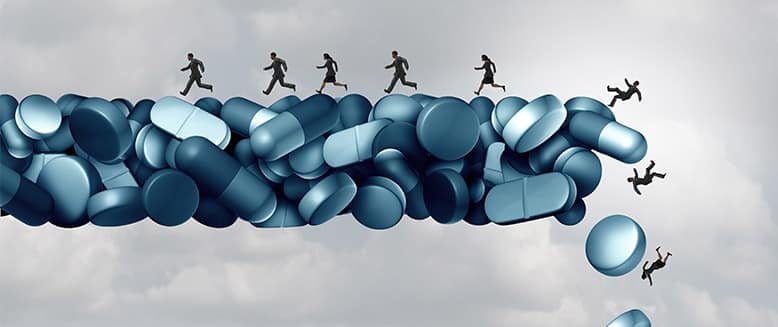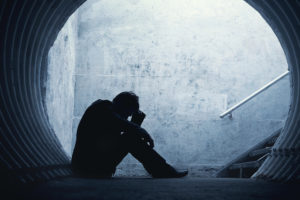What a line by Dr. John P. Morgan in the abstract from one his early journals on narcotics.
“American physicians,” he wrote, “markedly undertreat severe pain based on an irrational and undocumented fear that appropriate use will lead patients to become addicts.”
It kicked off Morgan’s “American Opiophobia: Customary Underutilization of Opioid Analgesics” and at that time — 32 years ago this September -– spoke to a nation not to be riveted by his declaration. More specifically, a nation that couldn’t comprehend that one day more than one-third of its adults would be prescribed medications by physicians.
This was confirmed in the government study out recently indicating that 38 percent (92 million people) of the American population used prescription opioids in 2015. Its research found that 1 percent of American adults (1.9 million people) had an opiate use disorder –- maybe not a jarring percentage, but a figure that will continue to move hard in the full-blown pill culture now officially uncloaked.
Vicodin, Morphine, OxyCotin, Fentanyl and other prescription opioid pain medications are so addictive they’re bunched in the same drug class as heroin. A study in 2013 found nearly 80 percent of Americans using heroin (including those in treatment) reported misusing prescription opioids first.
Effects of misuse have been widely proven to be as harmful as development of depression and anti-social personality disorder. Containing the physical effects, which can include insomnia and heart infection, requires significant detoxification and treatment.
In fact, according to data compiled three years ago by the National Survey of Substance Abuse Treatment Services, just 6 percent of the treatment facilities in the U.S. had the resources necessary to offer an inpatient detox program for heroin and/or prescription opioids. (For instance, to work effectively as long as it has, Northbound’s signature OneEighty Detox Program has had to maintain our staffing model of doctors, nurses, psychiatrists and counselors while continuing to keep medication-assisted treatments available to alleviate the painful symptoms of early withdrawal.)
Many of the most populated states were below the 6 percent figure. In New York, it was down at 3 percent for treatment facilities able to resource a full inpatient detox program.
At this point, the intensity of the prescription opioid problem has the clear attention of the White House, where in July President Trump’s opioid panel formally declared it a national public health emergency. The panel’s corresponding report cited the number of deaths related to opioids at 142 per day and wrote, “America is enduring a death toll equal to September 11th every three weeks.”
“Our citizens are dying,” their statement continued. “We must act boldly to stop it. The opioid epidemic we are facing is unparalleled.”
References
Muhuri PK, Gfoerer JC, Davies MC. Associations of Nonmedical Pain Reliever Use and Initiation of Heroin Use in the United States. Rockville, MD: Substance Abuse and Mental Health Services Administration; 2013.
About Northbound
Northbound is accredited by the Joint Commission of Healthcare Organizations (JCAHO) and a member of the National Association of Addiction Treatment Providers (NAATP).
Northbound is proud to offer a full continuum of care that spans from detox to aftercare for adults and families affected by addiction and co-occurring disorders. We provide a variety of evidence-based solutions and multiple levels of care for helping people break free from addiction and achieve long-term recovery following treatment.
Author
-

President, CEO & Founder at Northbound Treatment Network
Paul Alexander is the CEO, President & Founder of Northbound Treatment Network in Newport Beach, California. He believes wholeheartedly in transformational leadership, organizational health and effective, fully integrated substance use disorder and mental health treatment. With over 27 years of experience in behavioral healthcare, Paul has extensive knowledge of “in vivo” treatment modalities, clinical development, operations, strategy, marketing and financial planning. He has been widely recognized for his development of collegiate-based residential treatment programs for students in recovery and authored a research study at The University of California confirming this modality’s effectiveness.
Paul’s comprehensive professional experience, willingness to innovate, and emphasis on organizational health are vital factors in Northbound’s continued success. Paul received his Certified Addiction Treatment Specialist training at Saddleback College in Mission Viejo, CA, and was awarded Outstanding Alumni Service Award in 2002. Paul holds a Bachelor of Arts degree in Criminology, Law and Society, Summa Cum Laude, from University of California, Irvine, and a Juris Doctorate degree from Loyola Law School of Los Angeles. Paul currently serves on The National Association of Addiction Treatment Providers (NAATP) board. In addition, he serves on The Family Recovery Foundation board and The CarePossible board in Orange County; both organizations are committed to raising funds for family recovery and treatment for former military personnel. Paul is in recovery himself and lives in Orange County with his wife Silvana and his two young sons, Noah and Dean.










